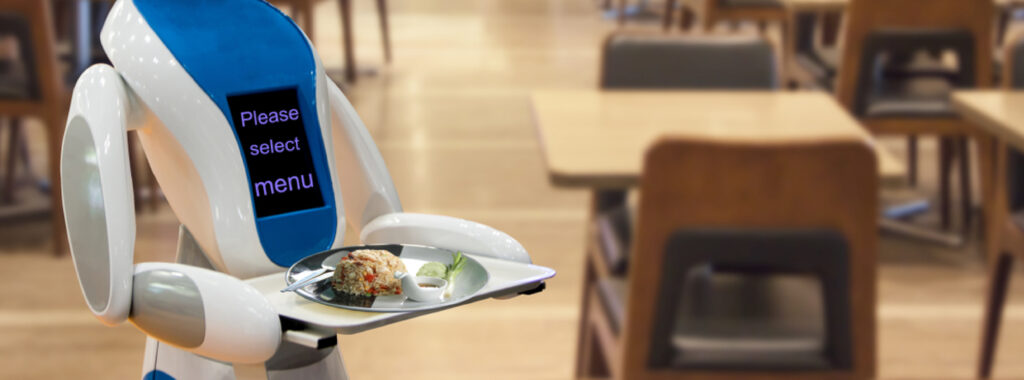Aspects of benefiting from the application of artificial intelligence in restaurants

Considering that artificial intelligence is the simulation of human intelligence by machines to perform tasks related to human jobs. Artificial intelligence develops systems that apply processes related to human characteristics such as reasoning, decision-making, and learning through past experiences.
Artificial intelligence helps businesses grow and prosper, including restaurants, especially quick service restaurants (QSR) that have limited meals and services. Artificial intelligence helps these restaurants improve their functions and operations.
So, how can restaurants benefit from applying AI? This is what we will know in the current article.
1- Reducing labor costs:
Artificial Intelligence automates a lot of tasks from entering orders at points of sale to processing payments and even providing data-driven insights that reduce the staff needed to perform those tasks and thus reduce labor costs. Robotic voice assistants can perform certain tasks for employees so they can focus on other duties.
In a hospitality industry plagued by high employee turnover and labor shortages, it is important to find alternative ways to operate your restaurants.
2- Reducing errors:
Human errors are likely to occur in every task but relying on artificial intelligence reduces the possibility of errors through optimal automation of different processes.
3- Improving customer experience:
Freeing up employee time to focus and excel at tasks that AI cannot do improves customer experience. With AI, customers can place their own orders, customize them and handle the entire ordering process quickly and efficiently, saving their time and increasing their satisfaction.
4- Answering the automated phone based on artificial intelligence:
Making customers wait on the phone and not answering risks losing customers to your competitors. AI phone answering technology that can make reservations, take messages, and even answer frequently asked questions helps you retain your customers.
There are specific common inquiries that can be programmed to be answered through this technology, saving customers time and enhancing their experience.
5- Self-service options:
Guests are given full control of their orders when checking the menu and placing their orders with self-ordering kiosks or even their phones. They can customize their orders, avail offers and pay without any human intervention.
6- Voice request:
Siri, Google Home, and Alexa are great examples of devices that help customers get things done through voice searches, which are done by 27% of people globally and 41% of adults in the US.
Voice ordering has also become popular as people can place orders using their voice while doing other mundane tasks.
Keywords: restaurants, services, artificial intelligence, customers